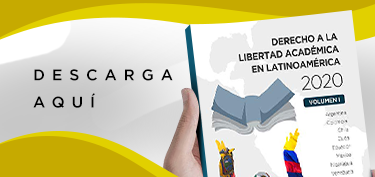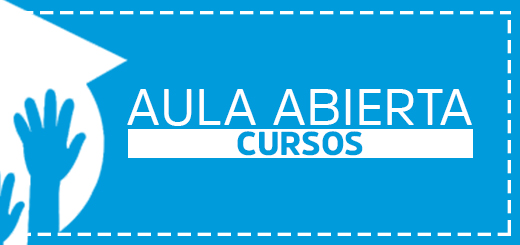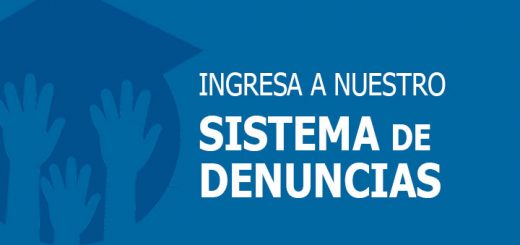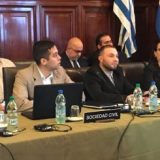Arbitrary detention of Venezuelan professor and human rights defender Rocio San Miguel also violates academic freedom and democracy
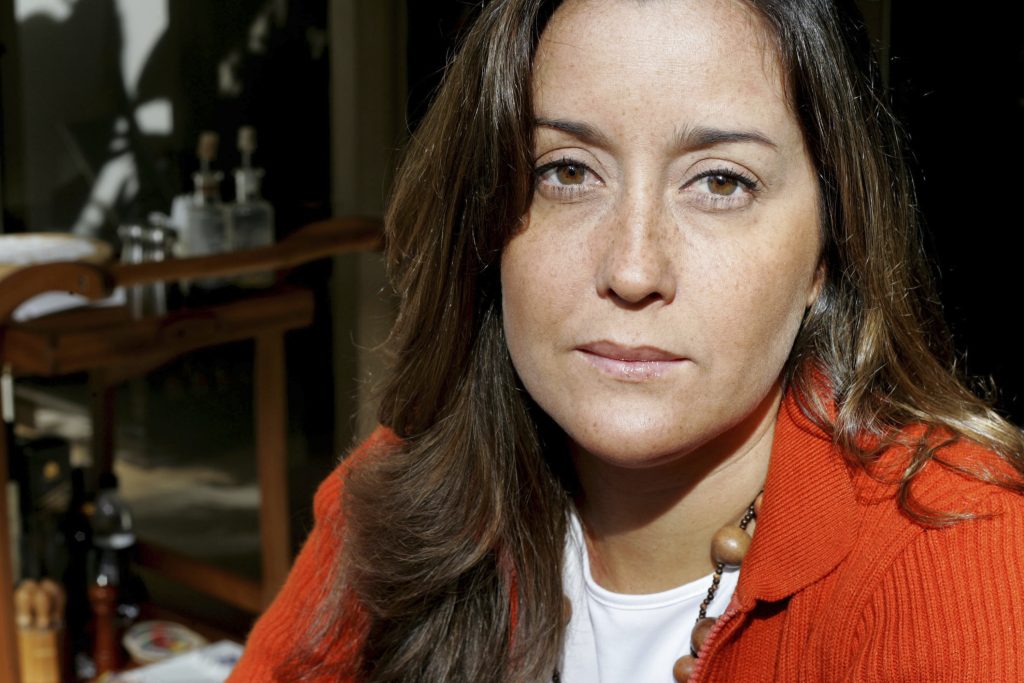
Aula Abierta protests against the arbitrary imprisonment and enforced disappearance of Rocío San Miguel, a human rights defender and university professor from Venezuela, who was detained on February 9, 2024, by agents of the Bolivarian Intelligence Service (SEBIN) and the Venezuelan Directorate of Counterintelligence (DGCIM).
Professor San Miguel is the president of Control Ciudadano, an NGO, and a lawyer. She has held academic positions at Venezuela’s Universidad Metropolitana de Caracas and Universidad Central de Venezuela (UCV). She has been a Human Rights teacher at the National Armed Forces Academy for almost a decade. She is an expert in matters pertaining to the military and national security and does scholarly study on a variety of subjects, including the organization, funding, and capabilities of Venezuela’s armed forces.
She has investigated and followed up on Venezuela’s international obligations, particularly those related to the Rome Statute, based on her area of expertise. She has written on this topic in a number of publications. She has additionally spoken about her areas of expertise at prestigious national and international conferences and events. She has also been a critical scholarly voice in the media, both domestically and abroad, bringing attention to the major issues surrounding Venezuela’s human rights and democratic conditions.
Furthermore, she has brought the matter before the Inter-American System as a human rights champion, criticizing Venezuela’s discriminatory policy based on the usage of the “Tascón List” and other official registries. On February 8, 2018, the Inter-American Court of Human Rights rendered a decision in the San Miguel Sosa et al. v. Venezuela case.
San Miguel took a stand against the Nicolás Maduro government’s proposed consultative referendum on the Essequibo in December 2023, particularly opposing the final three questions of the referendum that rejected the Venezuelan State’s application of international law.
After evaluating multiple instances of harassment and threats, including death threats, the Inter-American Commission on Human Rights (IACHR) approved precautionary measures for Rocío San Miguel and her daughter on January 18, 2012.
On February 9, 2024, Rocío San Miguel was detained at the Simón Bolívar International Airport in Venezuela as she prepared for her departure with her daughter. But it wasn’t until February 11 at 5 p.m. when Public Prosecutor Attorney Tarek William Saab, citing conspiratorial plans to assassinate President Maduro, announced the professor’s arrest via his X account. This circumstance breaches both the duty of States not to practice, permit, or condone forced disappearance and the international law prohibiting it. It refers to extremely grave facts that international human rights organizations should look into, including the possibility of ongoing abuses against people who are thought to be government opponents.
Persistent harassment and persecution patterns against academics and human rights defenders in Venezuela
Professor San Miguel’s situation is not atypical; it is a part of the Venezuelan State’s policy of intimidating and persecuting scholars and activists who voice critical views about the administration based on their research.
Additionally, in July 2021, Javier Tarazona, a professor at Universidad Pedagógica Experimental Libertador (UPEL) and the director of the non-profit Fundaredes, was arbitrarily imprisoned. The Inter-American Commission on Human Rights (IACHR) granted Precautionary Measures to both professors Tarazona and Rocío San Miguel.
In 2020, the Venezuelan Academy of Physical, Mathematical and Natural Sciences, as well as Professor Freddy Pachano (Director of the Graduate Medical School of the University of Zulia) were threatened by state actors because of their critical positions on the Covid-19 pandemic. In 2017 professor Santiago Guevara (University of Carabobo) was apprehended and prosecuted before military courts after his publications criticizing the economic model implemented by the Venezuelan government.
In addition to pointing to the existence of a State policy intended to diminish Venezuela’s civic space, the facts mentioned above also show that faculty members who engage in critical discourse on matters of public interest deemed “sensitive to the government” are targets of intimidation, threats, and retaliation.
This demonstrates the inextricable link between democracy and the exercise of the human right to academic freedom.
Serious violations to academic freedom
Academic freedom and other related rights are gravely violated when a highly experienced scholar is detained in reprisal for their academic success. Furthermore, taking them out of important public discourse undermines democracy in a community that loses access to specialized knowledge as a result.
Its absence harms both the democratic exercise of the right to education and the quality of education provided to the academic community. It also interferes with the right to free speech and association, upends democracy, and hinders the advancement of societies.
The Legislative Branch of Venezuela is putting the Bill for the Control, Regularization, Performance, and Financing of Non-Governmental groups into effect, which is aggravating this practice by attempting to silence critical non-governmental groups and civil society as a whole.
The Inter-American Commission on Human Rights (IACHR) has established the Inter-American Principles on Academic Freedom and University Autonomy, which emphasize that the application of criminal law to penalize individuals for exercising their right to academic freedom is incompatible with the safeguards provided by the Inter-American system for that right.
Academic freedom is a human right. When governments infringe on it through such means as vilification, police harassment, and arbitrary use of the administration of justice, they deprive society of the contribution that academics offer to the work of ensuring that the truth prevails.
Aula Abierta urges the Venezuelan government to immediately release university professor Rocío San Miguel and that her physical and mental well-being be protected. Due process and her right to a defense must also be respected, according to international human rights law.
Additionally, Aula Abierta calls for an end to the State’s persecution of critical academics like Professors San Miguel and Javier Tarazona, who both serve as directors of Venezuela’s non-governmental human rights organizations.
The public at large, the human rights organizations of the various international protection systems, and the international community are all urged to support academic freedom by emphasizing its crucial role in advancing democracy and social progress.

